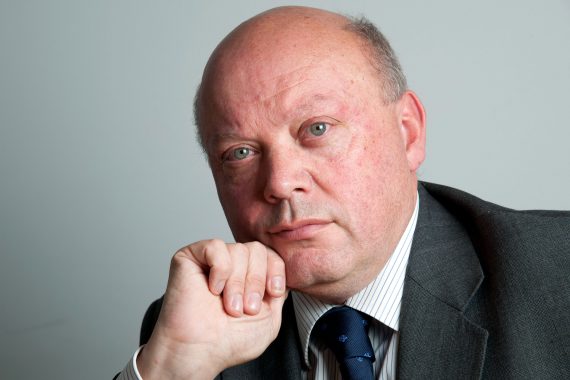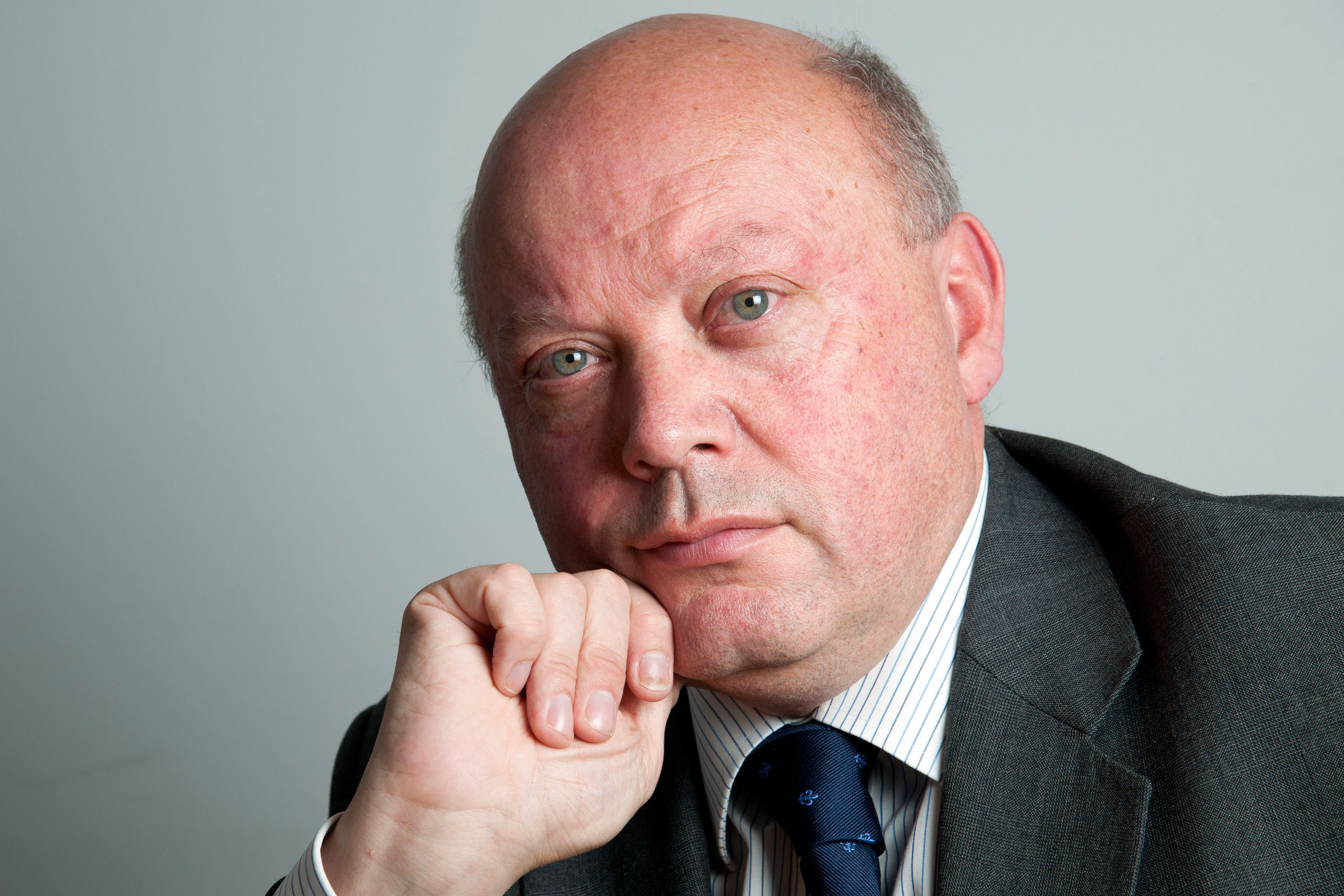‘I want to reduce the burden on GPs’


As the CQC’s new inspection regime for general practice passes its first anniversary, Professor Steve Field remains adamant that the new approach is working.
The regulator’s chief inspector is keen to stress its success and its positive impact on patient care when Pulse finally gets to speak to him – after more than a year of requests.
But it comes after a difficult year for the Birmingham GP. The chief inspector’s reputation reached an all-time low among GPs with the misguided publication of internal CQC ‘intelligent monitoring’ reports late last year. The CQC’s flagship scheme was eventually found to have used seriously flawed data and the regulator had to scrap its practice ‘risk ratings’ and apologise.
The RCGP has called for a halt to CQC inspections and the BMA proposes that the regulator be scrapped in its entirety. But Professor Field is still in post, and seemingly more energised than ever. Pulse speaks to him as he plans a public consultation on the future of CQC inspections, and a possible ‘lighter touch’ regime.
You recently mooted the idea of introducing a ‘lighter touch’ to CQC regulation of GPs. What is the thinking behind this?
I wouldn’t call it a lighter touch. By the end of September next year all practices will have been inspected at least once and we’re looking at how we develop this model in general practice, social care, dentistry, mobile doctors, hospitals and mental health trusts.
The CQC is going through its strategy for the next five years. We’re thinking about how often practices need inspecting in order to maintain their rating.
So practices achieving a ‘good’ or ‘outstanding’ rating can expect to be re-inspected in months or years?
My hunch is that they wouldn’t be re-inspected any more frequently than every three years.
Will the second wave of inspections be scaled back?
No. We’ve been through the practices once so they wouldn’t need the level of interrogation again. We know they’ve got all the policies and are ‘good’ so the emphasis is different. We’ll be looking at how we predict if practices are underperforming so that we don’t have
to inspect as frequently. We listen to CCGs and Healthwatch and we use intelligent monitoring. Monitoring and prediction have proved very good behind the scenes.
Intelligent monitoring had a turbulent start, though.
It did, yes. The question is, what’s the frequency of re-inspection? The answer is probably between three and five years for practices that were rated ‘good’ or ‘outstanding’. We will be consulting and working with the profession to see whether that is where we move to – because I want to reduce the burden on practices as much as I possibly can.
Is the move towards a model of less frequent inspection a result of a lack of resources?
Less frequent inspection was always my plan. We’re not scaling back as we didn’t set a date for re-inspection of ‘good’ and ‘outstanding’ practices. We’re finding that ‘inadequate’ practices need a lot of revisits and practices that ‘require improvements’ are usually re-inspected – depending on what their problems are – within three months to a year.
GP leaders have warned that labelling practices as ‘inadequate’ or ‘requires improvement’ – can make their situation worse because they can’t recruit, and might receive breach notices from NHS England. How do you respond?
In many of these surgeries we’re finding people have known they’ve not been performing well for many years. What we’re doing is standardising around the country. We’re thrilled that the RCGP is involved in about a third of special measures practices to provide support. We’re pleased that in some areas NHS England is providing extra support and we’re really pleased that the first practice in the ‘special measures’ regime (Priory Avenue Surgery, Reading) is already starting to improve care.
We are hoping that by the time we’ve been through all the practices, many of the very poor practices will be on the road to improvement. We’re also noticing a lot of practices are merging. We’re finding bigger provider organisations like Lakeside (Corby), and Whitstable, Kent. Sometimes acute trusts take them over, like at Priory Avenue Surgery. We’re finding improvement is being encouraged and the model of care is developing and changing. What we’re trying to demonstrate is that ‘special measures’ is about shining a light and we’re pleased it appears to have a galvanising effect.
What evidence is there that the CQC’s inspection regime is improving patient care?
We’ve got lots of evidence but we know that Priory Avenue Surgery has improved. I believe it would not have done if it hadn’t been put in special measures. This is the first practice that has been through our system. It’s not the first ‘inadequate’ practice to improve, but it is the first ‘special measures’ practice.
But that’s just one practice.
When we’re inspecting now, the quality of the practices we’re going to is much better than when we started the pilot. We were finding basic standards were a problem in almost a third of practices, but we’re not finding that now.
We’re also hearing when we talk to GPs that they’re doing more clinical audits, linking with other surgeries, and even doing mock CQC visits before we go in, so they are thinking about those standards.
As a GP yourself, can you understand the profession’s hostility towards the CQC?
Of course I can. I can understand the scepticism – and I’ve been working on this for years. I have been shocked at how bad a very small proportion of practices are and have been pleased that the majority are rated ‘good’. That’s been a real success for general practice and when we’ve got most of the practices up to ‘good’ we can start to look at doing things differently when we inspect.
The emphasis will be on continuous improvement because they’ve all reached the ‘good’ level. It won’t necessarily have to be the same focus on the finer details because the practices might be able to work with us on co-regulation, so they can say ‘we have a policy on recruitment and this is the evidence’. We want to try to reduce what you call the bureaucracy as we don’t have to do as much of that because they will be ‘good’. But until we’ve been through the process once we can’t say that. It’s not light touch; it’s actually a more mature system.
CV
Age
56
Family
Married with twin daughters
Education
1982 Graduated with a degree in medicine from the University of Birmingham Medical School
Career
1986-present Working as GP, currently in inner-city Birmingham
1995-2001 Regional advisor and director of postgraduate GP education, West Midlands Deanery
2001-2007 Regional postgraduate medical and dental dean, West Midlands Deanery
2007-2010 Chair of the RCGP
2011-2012 Chair of NHS Future Forum; led bill changes that became the Health and Social Care Act
2011-2015 Chair of the NHS Inclusion Health Board, Department of Health
2012-2013 Deputy national medical director, NHS England
2013-present Chief inspector of general practice, CQC









